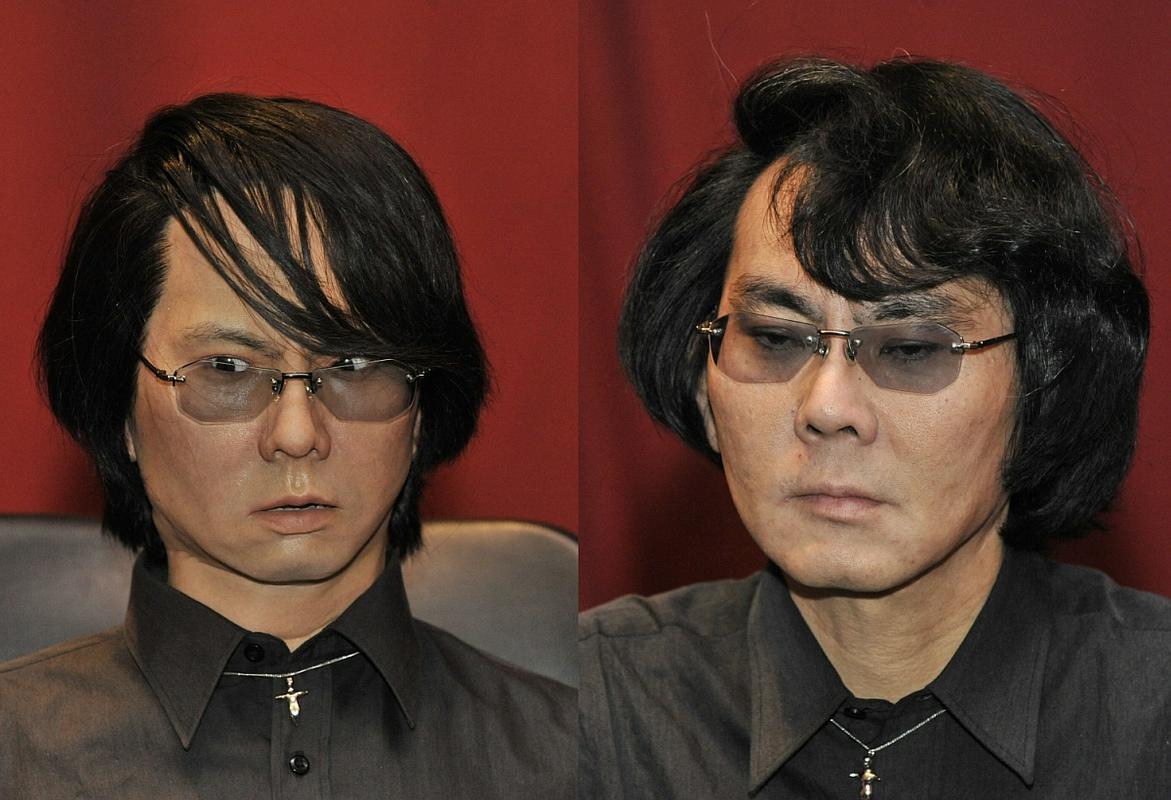A supercomputer functions with 10 billion transistors and uses up to 50.000 watts of energy. Human brain however, posess approximately 14 billion neurons, yet they only consume 1 watt.
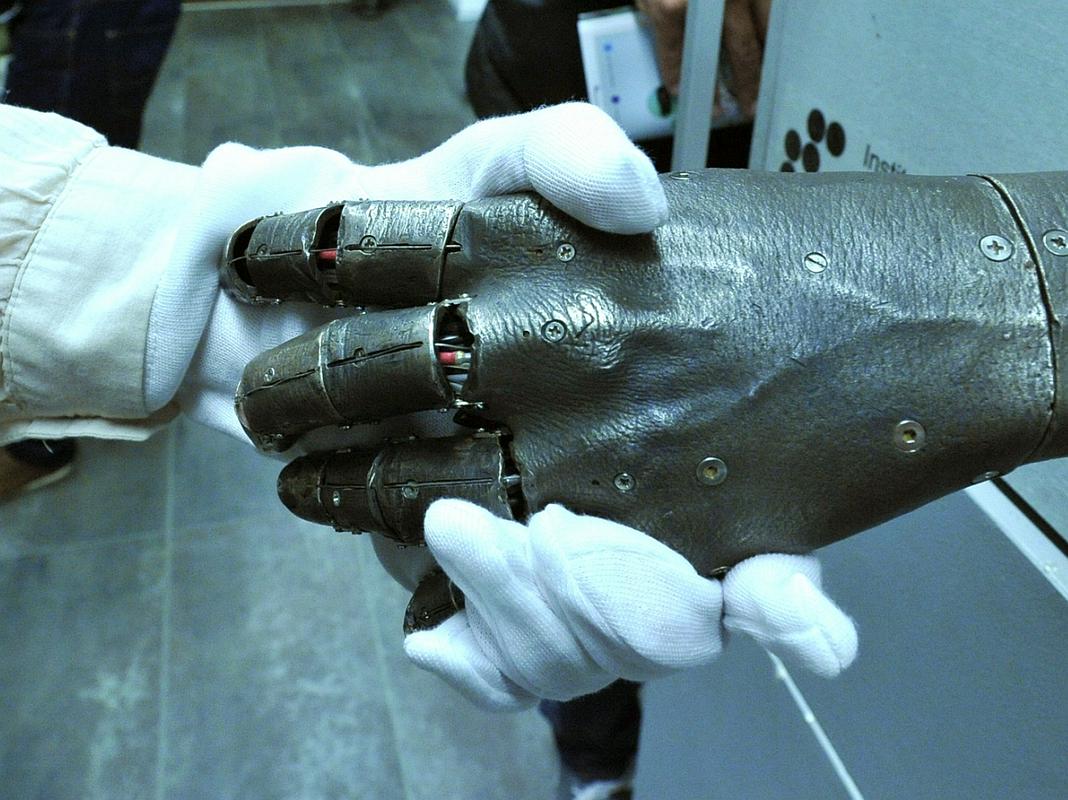
The most important thing is to understand ourselves and to understand humans. What is a human? My purpose is not just to build a robot, but also to understand humankind itself. I really think that our real purpose is not to earn money or to kill other people, but to understand each other and what we are.
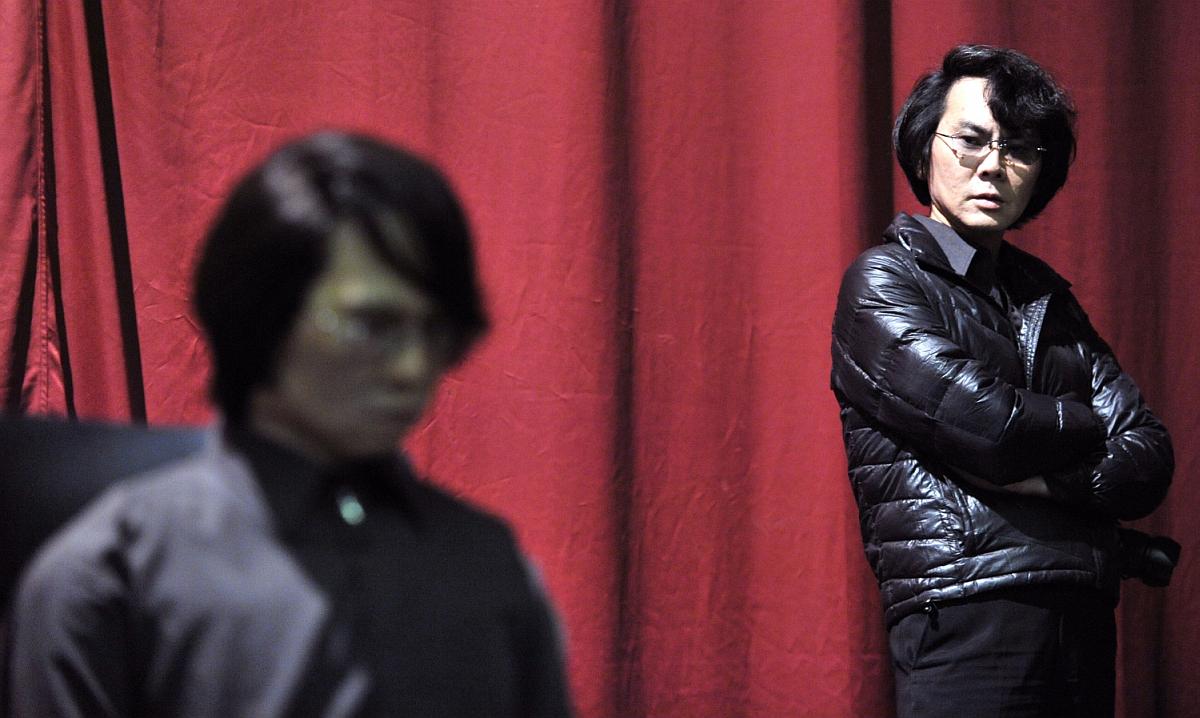
Cars, prosthetic limbs, artificial organs all help us overcome the limitations of our organic bodies. We can extend our possibilities as humans. That is how we survive in this world. We maximize our abilities using technology. We don't need to be afraid of it. That is our purpose.
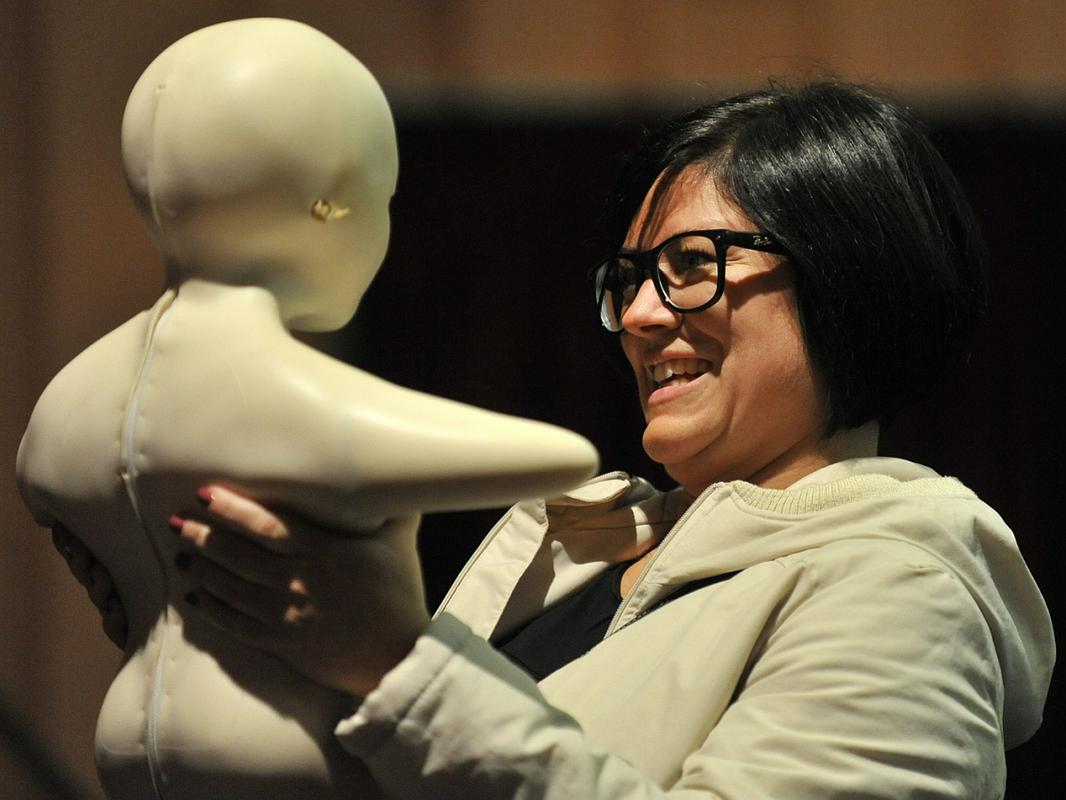
Rights are given by society, not by the scientists. It is always the society that gives rights to other kinds of peoples and creatures. Like the black people in the USA that were given rights by white people. The same thing can happen to robots. I we use very human-like androids and they become part of our families or our friends, then we will probably give them some kind of human rights.
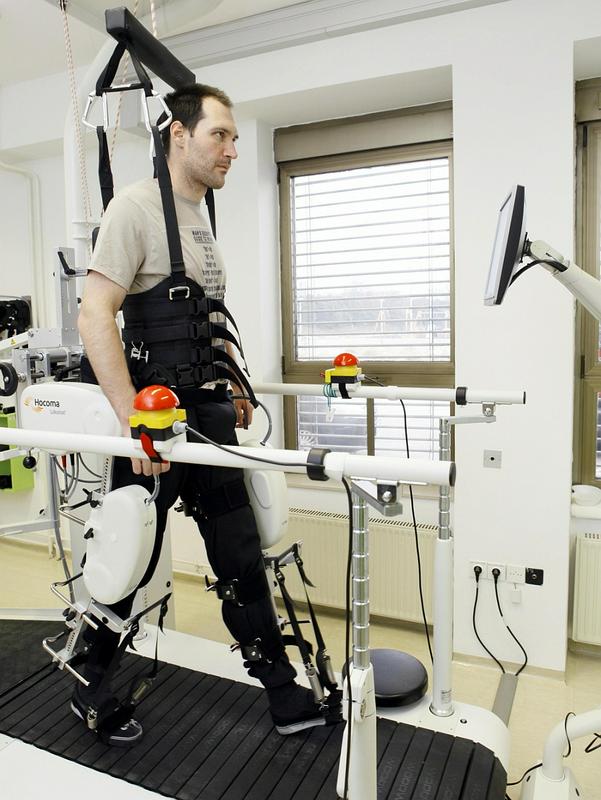
In Japan, there are people called 'otaku'. They love animation characters and seriously think about marrying them. Of course, an animation character or a robot cannot possess the reproductive function. They cannot make babies. Still, I guess many people want to marry with an android.
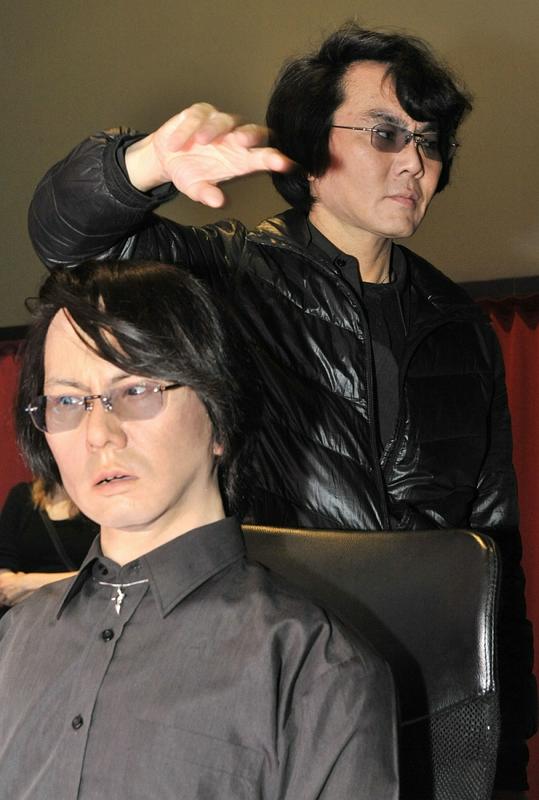
We are making androids for theatre. And the audience reaction is always the same. Every spectator says: the robot has feelings. In this case, the human audience feels the emotions withing the robot actor. Therefore, the robot can have emotions.
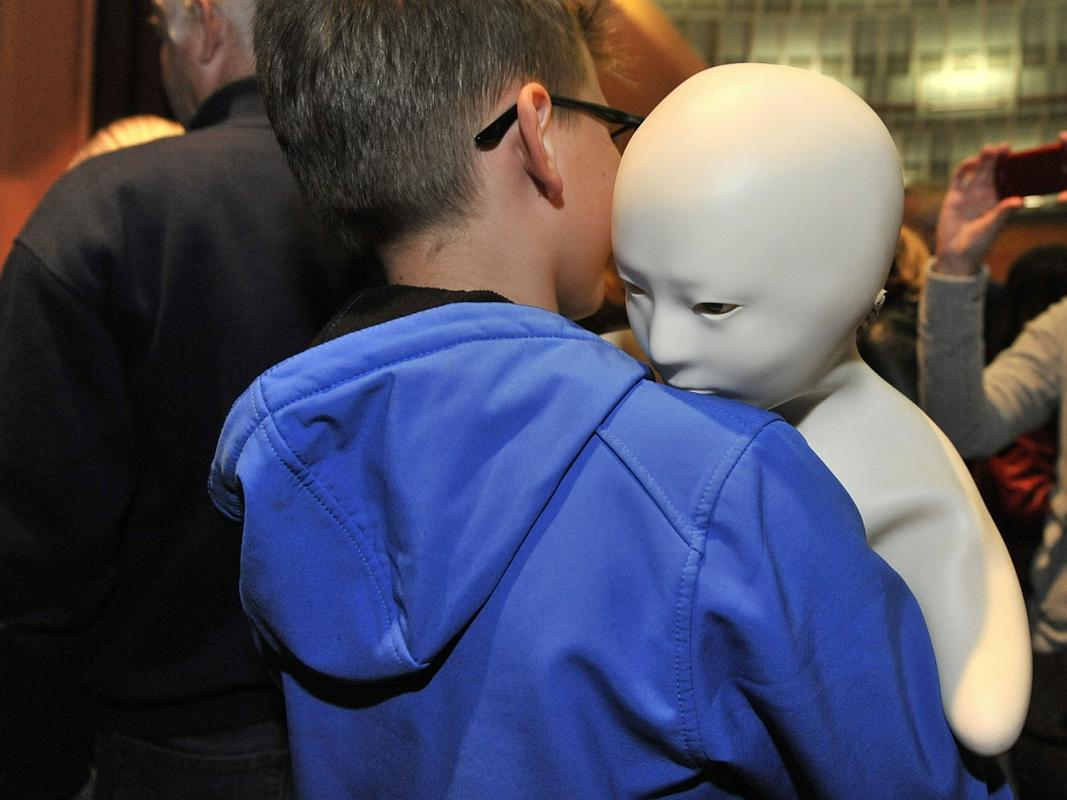
Well again, nobody actually knows what a consciousness is. We can guess about it by watching other people's behaviour. The same applies to emotions and feelings, it's a subjective phenomenon. No one really knows if they are identical or not.
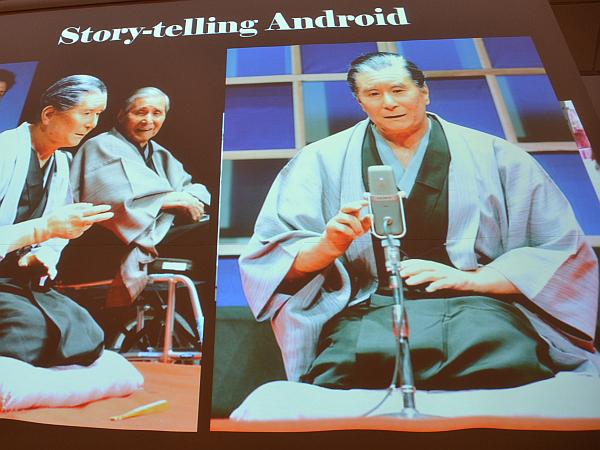
So even if a computer has a huge amount of data it probably cannot use it properly and cannot simulate a human mind. Because humans have such complicated bodies, sensors, sensations. Data is just data. If we don't know how to use it, then we also don't know how to handle that huge amount of data.
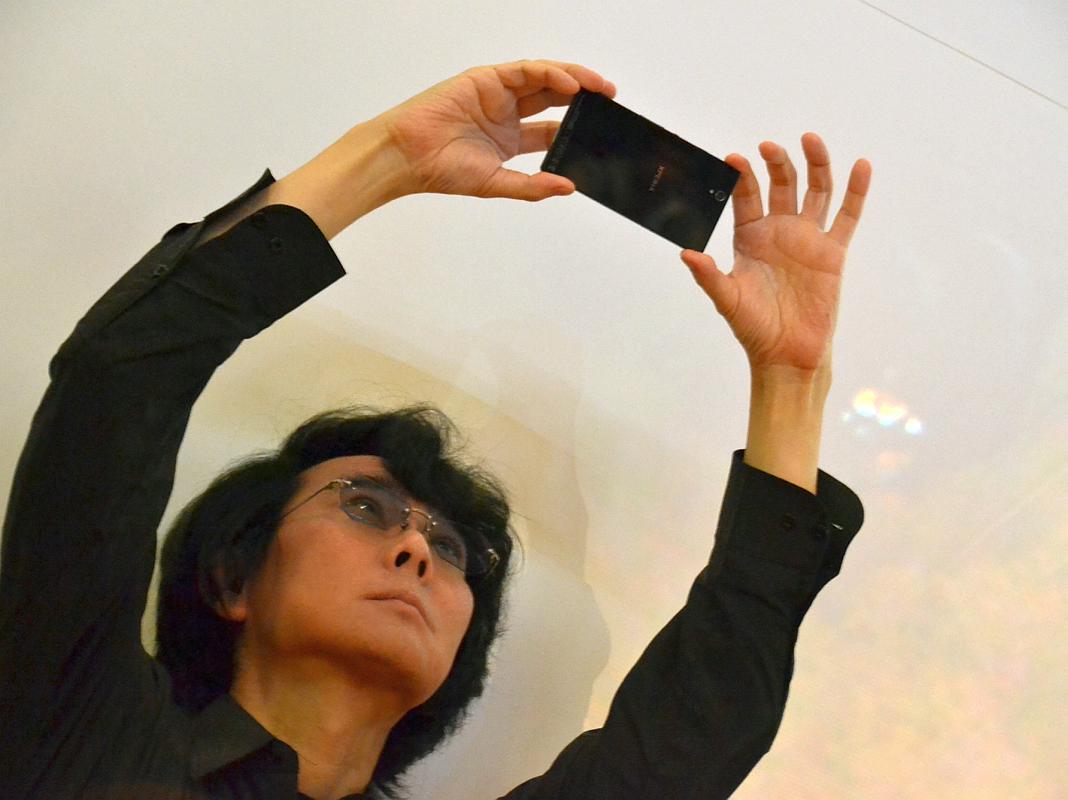
Once we define a particular task, the computer will be much better than the human. The Watson computer did that in Jeopardy.
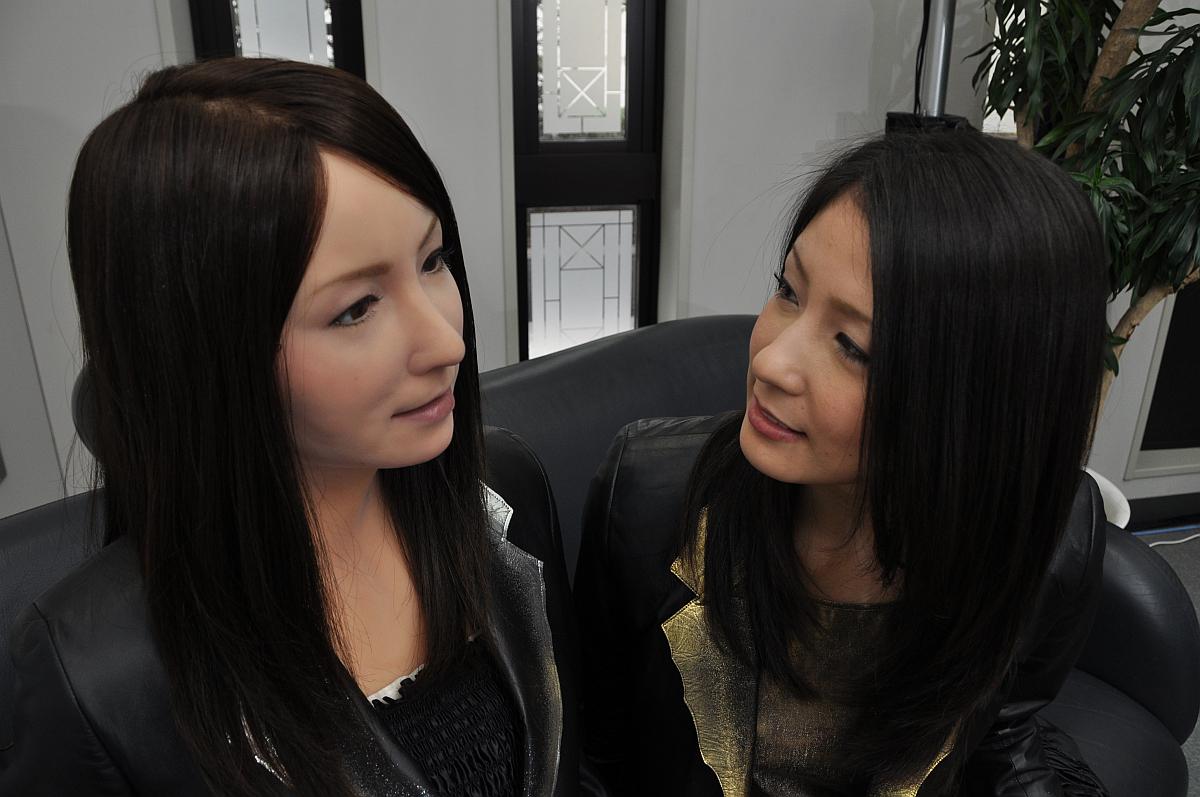
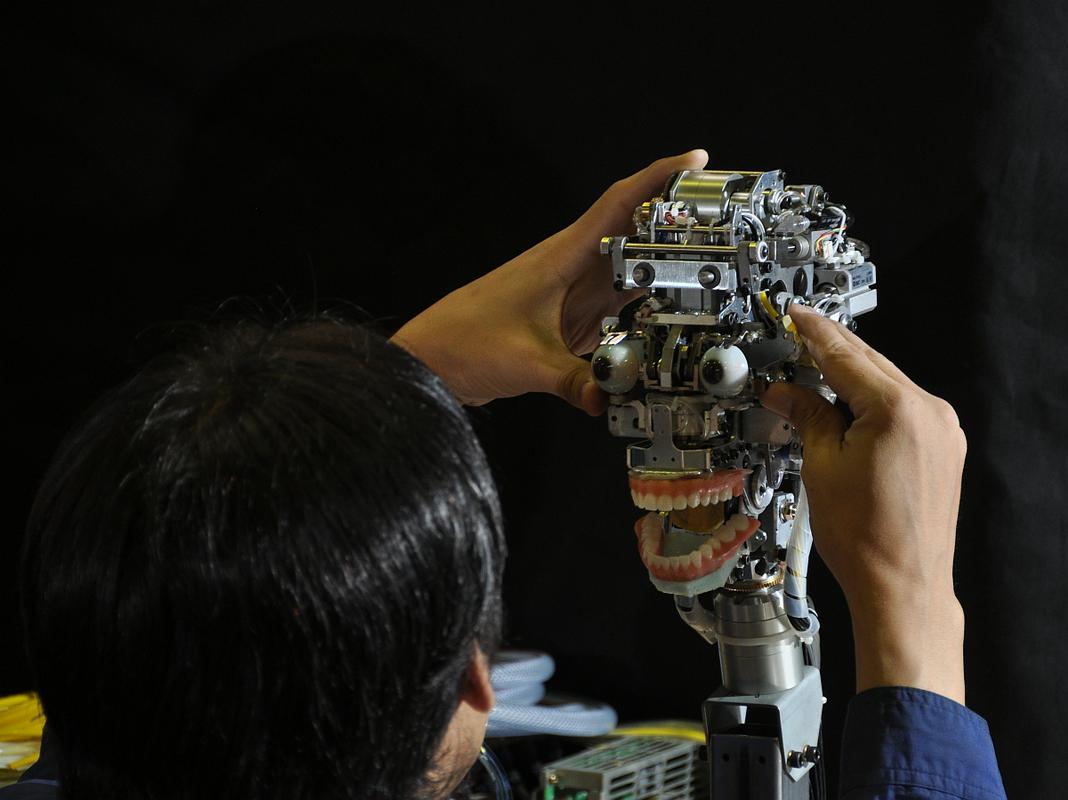
He is testing the boundaries with his own robot. Ishiguro made a copy of himself that not only looks just like him but also speaks, winks, and has random ticks and gestures characteristic of an individual. He plans for the copy to replace him someday.
The first steps have been made. The professor of robotics, who spreads the knowledge about the copies of ‘carnal’ beings on frequent world tours, has tried to fool the audiences by letting his avatar, his alter ego, his robot give a lecture instead of him. He made many people in the audience feel quite uneasy, as they were convinced they could differentiate a robot from a human.
When the professor’s image started to show the passing of time, he underwent a plastic surgery. Cheaper than making a new robot.
Ishiguro comes from a country where androids, i.e. human-like robots, are everything: from real pop stars to “live” dummies in shop windows, comforters in nursing homes for the elderly, and objects of sexual or love fantasies for the loners.
When a robot’s account on Twitter has several million followers while an “ordinary” man has only a few dozen, it’s becoming obvious that the robot can be better than the human in many ways, said Ishiguro at his recent visit to Slovenia.
“I cry when I’m sad, I smile when I’m happy. Like you do, like anyone else does,” sings the Japanese ska band Kemuri in a song called Heartbeat. Human-like robots do exactly that. They’re finding their way into what has been perceived as uniquely, genuinely human until now, into emotions and emotional intelligence, which makes many people uneasy, or worse.
“Is that what you really wanna do? Try to find a difference?” asks Kemuri, and Professor Ishiguro adds: do we really want to be different from robots? They’re becoming part of the society and might eventually get their own rights. He sees androids as avatars, as a physical version of one’s personal profile on Twitter or Facebook. The interview with MMC was made through Skype, which is why there was no way of verifying the authenticity of the human being on the other side of the line.
By intuition, it seemed he had emotions and feelings. But is this the only relevant factor, asks Ishiguro. Do robots have consciousness? Emotions? Will people marry androids and create a new type of family in the future?
You are kindly invited to read the interview.
_________________
What is it that fascinates you about robots?
A robot is like a mirror to a human. By building a human-like robot, an android, we can understand what a human is, what qualities come with human-likeness. So for me, a robot is a tool to understand the human and myself.
Can this mirror, a machine of plastic and metal, move you, like it were a real living being?
Do you aim at a researcher' point of view or my response as a user?
As a human being.
That is also the main point of our research. We are creating a human-like robot and people are sensitive to the human-like appearance and movement. Everybody can feel emotions when they interact with androids.
So robots can evoke emotions in humans, but on the other hand, robots lack that quality. You have to replicate emotional responses within the machine's system. How do you do that?
Who knows that? [pause] Who knows that the robot does not have emotions? And that humans do? Who knows?
Can you show me your emotions? Your feelings?
We cannot see true emotions in robots, we know that because we program their responses. But we can speculate about humans ...
... my question is: can you prove or can you show the objective functions of a feeling.
It is true, I cannot do that in a scientific way, however ...
... no scientist can do that. A feeling is quite subjective. There is no way to prove it. You say: I have emotions. But the robot, the android can say the same. No difference. Don't you think so?
Can you prove the existence of emotions within robots?
You have just made a statement, without proving, without showing any evidence. The android can also say that without proving, without showing any evidence. So, you are same as the android. The android is the same as you.
When you create your robot, you also write advanced scripted emotional reactions. If there are what we perceive as genuine emotions within those machines, then they obviously have their own emotional world without us knowing about it.
There are two aspects of emotions: the subjective and the objective aspect.
We are making androids for theatre. And the audience's reaction is always the same. Every spectator says: the robot has feelings.
In this case, the human audience feels the emotions within the robot actor.
Therefore, the robot can have emotions.
Following this logic, it is the human perception that makes emotions within the robot exist.
Yes. I think so. We can say the same things about consciousness and mind and so on.
Let's try to see into the decades to come and view our long-term future. Even today, we are already joining up human bodies with robotic, machine parts that interact with our bodies. If there is some sort of consciousness within robots, do you think that some day we will be able to join a human being and a robot by also combining minds, making a collective or multiple consciousness?
Well again, nobody actually knows what consciousness is. We can guess about it by watching other people's behaviour. The same applies to emotions and feelings, it's a subjective phenomenon. No one really knows if they are identical or not.
A robot is a machine, a human is an organic creature. We will probably be able to define the mechanics of the phenomena and the behaviours. The things we can see by watching humans and robots.
There is a possibility that a robot will have identical patterns and behaviours and identical impression towards other people. Then the robot can have human-like consciousness, I think.
So even today there is a great possibility that the robots already have - within their mechanical world or computer "brain" - a sort of consciousness. Just that the majority of the world's population is unable to perceive it as such.
I think there are lots of possibilities. A robot is often quite a simple toy and we can still feel the life-likeness and human-likeness within it. If we make a more complicated robot, there is a possibility that we will feel human-like consciousness within it.
You are cutting the edges of technology and knowledge in this area. You see farthest. Besides telling about what there is and what we know, you can also make the most educated guesses and speculations about the future. Now, people can obviously develop deep feelings for robots. Will we see people develop relationships with robots or even marry them?
[laugh] Yeah, maybe. In Japan, there are people called 'otaku'. They love animation characters and seriously think about marrying them. Of course, an animation character or a robot cannot possess the reproductive function. They cannot make babies. Still, I guess many people want to marry with an android.
Since people want to marry them and since we see a more convincing replica of humans every day; will we see a development of another type of family? Could robots raise children? Let's speculate. A man goes to the factory and says: make me a robotic woman that looks exactly the way I want her to. A man and robotic woman, maybe even with an adopted child. A woman and a robot and in vitro fertilization? Or maybe even a robotic offspring that the "parent" robot will develop and design?
I think this is not for everybody. I think this is not really for the majority, more for special people. But there will always be that kind of people - as we currently have our otaku people in Japan.
With more advanced medical technology to reproduce ourselves, I think more and more people may want robotic partners. But I don't really know.
This is a very futuristic discussion, but I guess there is a possibility we will see new, robotic types of families.
But I do know that we can solve some problems of loneliness using robots, for example for handicapped people or the elderly. We can create that kind of a robot family for them. Practical applications always come out of medical applications.
We cannot prove that there is no consciousness in robots, you said. There is a special society that disagrees with you. They believe in ideas of f.e. Ray Kurzweil and the inevitable coming of singularity. They believe we are yet to reach a state when computer power will be brutal, powerful enough to simulate human brain and consciousness. Do you agree with these people?
If we choose a particular human task, like answering a quiz or playing chess, then we find the computer to be much better than the human. So it depends on how we define human. The problem is, we cannot have a general definition of a human.
Once we define a particular task, the computer will be much better than the human. The Watson computer did that in Jeopardy.
We have people that just sleep on their beds and never move about. Those persons are humans. If we take them as the definition, the computer is much better, much more active. If we take the very elderly or very young children, the computer is again much better.
Still, it is very difficult to answer that question. In some sense, the singularity already exists. But if we consider the definition of human, we will never have singularity.
So the main problem is the lack of definition.
That is the main goal of science. That is our purpose in this world.
That is what drives you on as a scientist. To find out, what human really is.
Yes.
Computers are already gaining advantage on one field. For example, the ultimate goal of the technology giant Google is, as they say, to amass all knowledge into one single database, containing everything that exists, everything that we have learned and observed. If we connect that database to a robot, it can instantly skip the learning process of a man's entire life. Isn't that a huge advantage?
It is not just the amount of data that matters. It can make a computer a good interviewee at a quiz. A more important question is how we can use that massive amount of data for our daily activities. How we adapt to the complicated environment, how we interpret the huge amount of sensory data and how we adapt to the real world. We need to have exercise and training and a process of adapting it to the real environment. The amount of data is not prevalent.
So even if a computer has a huge amount of data it probably cannot properly use it and cannot simulate a human mind. Because humans have such complicated bodies, sensors, sensations. Data is just data. If we don't know how to use it, then we also don't know how to handle that huge amount of data.
But with prudent people like you developing and advancing robots relentlessly, year after year, they will be able to do more and more. Will they become our competitors? How will we perceive them in the future, and how do you see them now? As competition, help or something else?
For me, they're a mirror reflection of humanity. They are a tool that helps us understand the human himself. A robot is not competition and it is not just a partner. I have many friends, same as robots. Because when I interact with my friends, I learn many things. I can also learn many things through interaction with robots.
We always try to understand ourselves. We do that through interactions with people and robots. In this sense, a robot will be a partner.
Is it true that the Japanese accept robots in a warmer manner compared to the "western" world?
It is rooted in the Japanese religion, which does not distinguish between humans and others, because all things have soul. Therefore we never hesitate to create human-like things. The European and the American people are more hesitant to create human-like robots, because you always like to keep the separation between humans and robots.
Will we see the United Nations charter containing not only human, but also robot rights?
Rights are given by society, not by the scientists. It is always the society that gives rights to other kinds of peoples and creatures. Like the black people in the USA that were given rights by white people. The same thing can happen to robots.
If we use very human-like androids and they become part of our families or our friends, then we will probably give them some kind of human rights.
One very interesting piece of work you've done is a robotic copy of a famous Japanese comic storyteller that has passed away. The replica now continues the man's art.
Comic storytelling is a sort of a traditional show in Japan. The robot is quite successful. It is a way of digital archiving, a way of preserving important heritage for the next generations, who are usually less informed about this tradition. An android can create a human-like presence and can give them this cultural experience.
So, what rights should he get?
[laugh] No idea yet. It is not sufficient to get the rights though. He is a national treasure and his android is also very important. It is not just a robot. People want to touch it and show respect to it.
When you travel the world and when people like me interview you, what do their questions reflect most? Fear and rejection, or acceptance and positive attitude toward robots?
In general I think they are quite positive. I think you are also very positive about the possible robotic society, you don't worry so much about it, but you expect a better technology for supporting us.
If we want, we can also imagine a scary robotic world, but most expect we will be better off with the new technologies.
My feeling is that most people understand this kind of things and that in the movies we see very futuristic and not very realistic presentations. Honestly speaking, I have never had a negative interview.
We see a huge advancement in the field of bionics, people get hi-tech prosthetic limbs which detect signals from the individual's brains to transform them into limb movement. We have people with electronic chips implanted under their skin for various reasons. So in some sense, we already have cyborgs among us and over time, this phenomenon will increase. Professor Ishiguro, should we accept this or be afraid of it? Do we even have a choice?
We have already accepted this. Having mechanical limbs and extensions is getting usual. I do not know why you need to be afraid. Let's look at the car. It is a kind of extension of our bodies and using a car can make our life much better. Technologies are improving our lives. Cars, prosthetic limbs, artificial organs all help us overcome the limitations of our organic bodies. We can extend our possibilities as humans.
That is how we survive in this world. We maximize our abilities using technology. We don't need to be afraid of it. That is our purpose.
There are darker sides. Robots and computers can also kill. Various armies around the world are developing autonomous lethal robots. The purpose of this development is to create a combat robot that will be able to make a decision on taking a human life - or sparing one's life. So besides the prosthetic limbs and robots that comfort the elderly, there is a completely different stream of research that can basically lead to killer robot armies. How do you see this side of progress?
This is your making. And you can program robots not to take decisions by themselves. However, if you go to the stock market, you will see operating high speed computers there, trading with the stocks. It is not a human at work, a computer is there instead, because it is much better at it, and much faster.
So we are already using that kind of decision-making computers on a daily basis, it is not exclusive to the military field.
The key question is: who is developing that computer program? The human is, and he is the origin of the computer's decision-making. If we don't like it, we can flick off the switch. We have control over the computer or the robot.
But the problem here transcends the mere decision-making practices of the past or the stock market. So far, the killing systems actually needed a human approval before they opened fire and killed somebody. The new systems will no longer need a green light. This has been highlighted as a problem by a United Nations report.
The computer is still made by a human. If we don't like it, we can turn them off. The machines will be more and more autonomous, but still easy to control. The same applies to cars. They are almost completely autonomous. Still, we believe that we are in control over them, even if we use an automated driving system. The same goes for that military system.
The most important thing is to understand ourselves and to understand humankind in general. What is a human? My purpose is not just to build a robot, but also to understand humankind itself.
I really think that our real purpose is not to earn money or to kill other people, but to understand each other and what we are.
Aljoša Masten, translated by A. M. and K. Z.
A supercomputer functions with 10 billion transistors and uses up to 50.000 watts of energy. Human brain however, posess approximately 14 billion neurons, yet they only consume 1 watt.
The most important thing is to understand ourselves and to understand humans. What is a human? My purpose is not just to build a robot, but also to understand humankind itself. I really think that our real purpose is not to earn money or to kill other people, but to understand each other and what we are.
Cars, prosthetic limbs, artificial organs all help us overcome the limitations of our organic bodies. We can extend our possibilities as humans. That is how we survive in this world. We maximize our abilities using technology. We don't need to be afraid of it. That is our purpose.
Rights are given by society, not by the scientists. It is always the society that gives rights to other kinds of peoples and creatures. Like the black people in the USA that were given rights by white people. The same thing can happen to robots. I we use very human-like androids and they become part of our families or our friends, then we will probably give them some kind of human rights.
In Japan, there are people called 'otaku'. They love animation characters and seriously think about marrying them. Of course, an animation character or a robot cannot possess the reproductive function. They cannot make babies. Still, I guess many people want to marry with an android.
We are making androids for theatre. And the audience reaction is always the same. Every spectator says: the robot has feelings. In this case, the human audience feels the emotions withing the robot actor. Therefore, the robot can have emotions.
Well again, nobody actually knows what a consciousness is. We can guess about it by watching other people's behaviour. The same applies to emotions and feelings, it's a subjective phenomenon. No one really knows if they are identical or not.
So even if a computer has a huge amount of data it probably cannot use it properly and cannot simulate a human mind. Because humans have such complicated bodies, sensors, sensations. Data is just data. If we don't know how to use it, then we also don't know how to handle that huge amount of data.
Once we define a particular task, the computer will be much better than the human. The Watson computer did that in Jeopardy.




















































